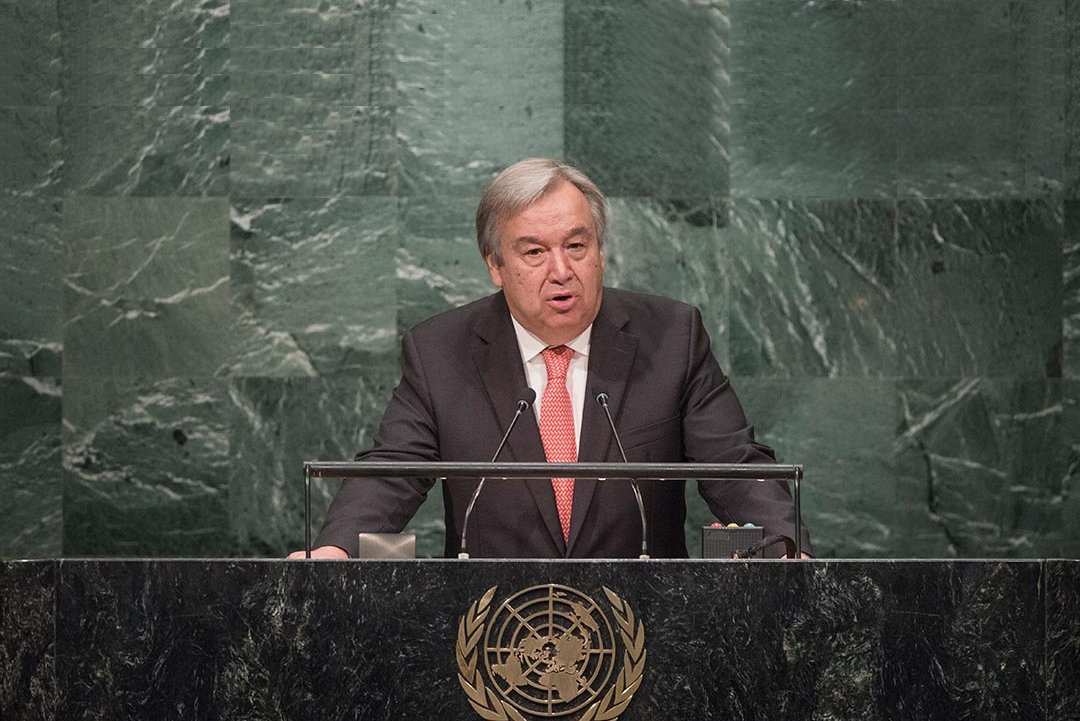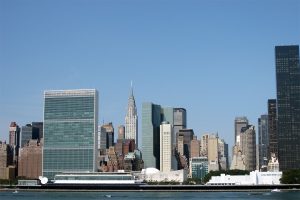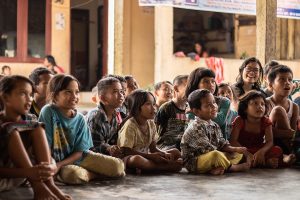The UN General Assembly (UNGA) held a consultation on ‘Our Common Agenda’ during which UN Secretary-General António Guterres briefed Member States on progress towards implementing the proposals contained in the report. Describing the proposed Summit of the Future and the second SDG Summit in 2023 as “twin summits,” Guterres said the two high-level events share the common objective of “creat[ing] conditions for a sustainable, equitable and inclusive future.”
Addressing the Assembly, the Secretary-General said the impacts of the COVID-19 pandemic, conflicts, and the triple planetary crisis of climate change, air pollution, and biodiversity loss are throwing the 2030 Agenda for Sustainable Development and the SDGs “further off course,” particularly in developing countries, which he said “are being squeezed dry.” He outlined the “ripple effects” of the war in Ukraine on the surging food and energy prices, the “perilous” global economic forecast, and the intensifying geopolitical competition.
Describing ‘Our Common Agenda’ as a “booster shot” for the SDGs, Guterres said the report “provides a framework and an opportunity to unite the international community around solutions to the situation.” He identified four broad categories that the ideas in the report fall under:
- a New Global Deal to redistribute power and resources, and a renewal of the social contract;
- a focus on the future, with steps to enhance youth engagement and to take future generations into account in policy decisions;
- an effort to deliver public goods and manage global shocks and crises more effectively; and
- an upgrading of the UN, so we are better equipped to support Governments in finding and implementing multilateral solutions.
Progress report on ‘Our Common Agenda’
The Secretary-General commended Member States for adopting a “historic” resolution on the right to a clean, healthy, and sustainable environment.
He indicated that work has begun on many of the other proposals, including: coordination on the proposals relating to jobs and social protection through the Global Accelerator; ongoing review of the UN system’s ability to deliver on gender equality across its mandates and programmes; preparations for the Transforming Education Summit in September 2022; and consultations on a proposed Youth Office and work on an elements paper for a Declaration for Future Generations.
Guterres said that, during the upcoming 77th session of the UNGA, he will present his view on the reform the international financial architecture to take the New Global Deal forward. He said he will propose “short-term actions to provide immediate relief to highly indebted developing countries and long-term measures to guarantee resilience and debt sustainability.” He further indicated he will explore with Member States a timeline for the proposed Biennial Summit among the members of the Group of 20 (G20), the UN Economic and Social Council (ECOSOC), international financial institutions, and the UN Secretary-General, with an inclusive approach.
On upgrading the UN, Guterres highlighted “fostering a new culture and new capabilities in data, digital, innovation, behavioural science and strategic foresight” as five “agendas for change.”
Summit of the Future
The Secretary-General characterized the proposed Summit of the Future as a “once-in-a-generation opportunity to reinvigorate global action, recommit to fundamental principles, and further develop the frameworks of multilateralism so they are fit for the future.” He said it will also be “the moment to agree on concrete solutions to challenges that have emerged or grown since 2015.”
The Summit of the Future should maximize the booster effect for the 2030 Agenda and the SDGs.
Guterres hoped that the outcome of the Summit will be an intergovernmentally negotiated and agreed Leaders’ Pact for the Future, which countries will be able to commit to at the UNGA high-level week. With a commitment to reinvigorate the multilateral system at its heart, the Pact, he said, must “refocus our efforts” to meet the commitments under the 2030 Agenda and the Paris Agreement on climate change, address threats to international peace and security, and realize human rights, international justice, and gender equality goals.
The Secretary-General said human rights and gender equality will be cross-cutting themes of the Summit of the Future. Among the proposed tracks and possible outcomes, he highlighted:
- a New Agenda for Peace, to address the existing and emerging threats to peace and security;
- a Global Digital Compact for an open, free, and secure digital future;
- a Declaration on Future Generations, including agreement to appoint an Envoy for Future Generations;
- a high-level political agreement on the peaceful, secure, and sustainable use of outer space;
- an Emergency Platform, to manage future global crises in a fast and coordinated way; and
- more effective multilateral arrangements.
He said multistakeholder engagement “will be essential on many of these issues.”
UNGA President Abdulla Shahid informed Member States that the Permanent Representatives of New Zealand and Oman have been appointed to lead negotiations on the modalities resolution that would enable the Summit of the Future to take place. He further indicated that the establishment of the UN Youth Office will be co-facilitated by the Permanent Representatives of Egypt and Guyana, and the Declaration on Future Generations will be co-facilitated by the Permanent Representatives of the Netherlands and Fiji.
“Twin summits”
Guterres concluded by describing the linkages between the proposed Summit of the Future and the SDG Summit. He said the latter will take place in 2023, “at the midpoint of implementation of the 2030 Agenda,” to review progress on the SDGs, recommend policies, and launch initiatives to “rescue” the Global Goals. The “twin summits” are “are our last, best chance to deliver on … a multilateral system that manages and solves global challenges in a timely, effective and fair way,” the Secretary-General underscored. [UN News Story] [Our Common Agenda Briefing and Interactive Discussion: Provisional Programme]



